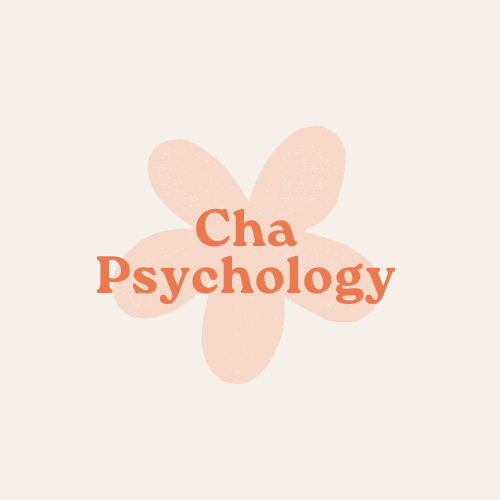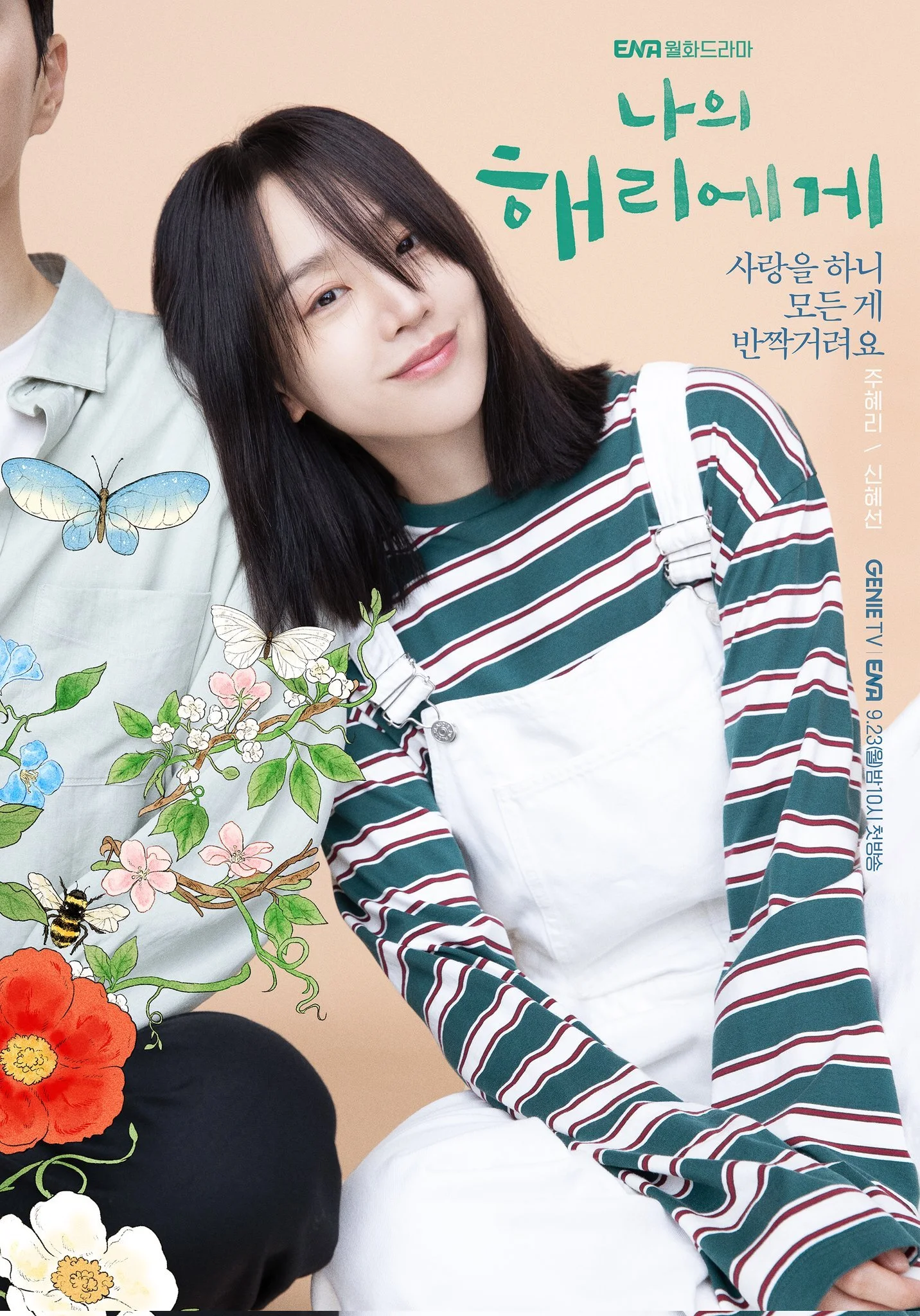K Drama About Mental Health #4: Dear Hyeri
Grief, Loss, and Longing
Have you ever grieved the loss of a loved one so much that you “channeled” them by doing the things they loved, eating the foods they loved, going to places they loved? By reenacting moments from the lives of our loved ones, we commune with them. Such “visits” can help us feel closer to the beloved we lost. I’ve found myself doing this quite a bit after the loss of my cat, Mistress (which I wrote about in a post about pet loss and grief). Or, maybe, if you’re in any way spiritual, you imagine your loved one is somewhere in the ether, watching you do these things and feeling moved by your tribute.
What if this was taken to the extreme and you just became your beloved? That’s the premise of Dear Hyeri, a 12-episode K-drama that originally aired on ENA. The series stars Shin Hye Sun, whom I adored in See You in My 19th Life. Sidenote: she stars in a newer drama on Netflix called Welcome to Samdal-Ri but I ended up not watching beyond the first 2 episodes or so because I got too distracted. In any case, in Dear Hyeri, Shin Hye Sun delivers a stellar performance as a grief-stricken news anchor struggling with Dissociative Identity Disorder (DID). DID is the official diagnostic name for what used to be called Multiple Personality Disorder. As its former name suggests, it’s a condition where a person develops two or more distinct identity or personality states that are distinct from moods or traits. Each personality state has their own way of thinking, feeling, and relating to the world, like a separate individual. It’s a complex condition that is a response to acute trauma, typically in early childhood (before 9 years old). The different personality states develop as a result of the “splitting off” of parts of the self in order to cope and survive distressing circumstances. Multiple Personality Disorder was re-named as Dissociative Identity Disorder because research over the years revealed that the personality states are in fact dissociative experiences as there are often gaps in memory when different personalities emerge. What begins as a creative and usually helpful survival mechanism in childhood can become a persistent way of organizing consciousness and memory that inhibits healthy development and functioning.
While Dear Hyeri uses some elements that resemble dissociative experiences, it's important to note that the show takes A LOT of creative liberties with the clinical reality of DID for dramatic effect.
Summary of the Story (Spoilers Ahead!)
Dear Hyeri follows Joo Eun Ho, a seasoned news anchor. In the beginning the drama introduces some of the banal issues in Eun Ho’s life, such as her wish to be a more successful and impactful anchor. But as the show progresses we see that her life is even more complicated when she's forced to work alongside her ex-boyfriend Jung Hyun Oh. The backstory about these two is that Hyun Oh became a breakout star or a news anchor after a painful end to their 8-year relationship. We then learn that Eun Ho carries a lifetime of profound loss: her parents died when she was young, and her only sister, Hyeri, mysteriously went missing in the woods during a trip with college friends. In a somewhat clumsy way, the show suggests that Eun Ho has accumulated all this loss, trauma, and grief, and as a result, develops different identities. Over the course of the show, we watch Eun Ho become more self-aware about this dissociation, at times addressing it in therapy with her psychiatrist and even communicating with her alter ego through a diary. (Gotta say that watching that psychiatrist work was kind of cringe for me. I was like, “Girl is that really your intervention for this?”)
No K-drama would be complete without a handy dandy love triangle, right? Dear Hyeri delivers in the form of Kang Ju Yeon, a former military officer who is now a newbie news anchor. He falls in love with Eun Ho’s cheerful alter ego (Hyeri) and of course doesn’t know the whole dissociative identity thing. Eun Ho’s alter ego starts dating Ju Yeon, while Eun Ho as herself still has unresolved feelings for her ex-boyfriend Hyun Oh. The drama never reveals what happened to Hyeri all those years ago but by the final episode, Eun Ho moves toward a more functional, coherent life.
When Grief Reshapes Who We Are
Dear Hyeri speaks to a manifestation of grief that doesn't get talked about enough: grief can fundamentally alter our sense of self. When we lose someone deeply important to us, we often experience what psychologists call "identity reconstruction." This process can manifest in several ways that might feel both foreign and strangely comforting. Some people find themselves adopting their loved one's mannerisms, speech patterns, or even career interests. A daughter might suddenly develop her late mother's love for gardening, despite never showing interest before. A widower might start reading the poetry his wife cherished, feeling her presence through the words she once loved. These aren't conscious decisions. Rather, they're the psyche's way of maintaining connection and making an unbearable absence more bearable.
Another way grief reshapes Eun Ho in the drama is that after her parents die, she assumes the role of “the strong one” for her younger sister, Hyeri. The flashbacks show Eun Ho trying to convince her sister that the world hadn't ended yet and that they would be fine. This feels so familiar because of how common it is in East Asian family systems where the eldest child, particularly daughters, are expected to postpone or disregard their own grief process in order to prioritize taking care of others, which often incudes helping to manage others’ emotions. But I also found the characterization of Eun Ho relatable in that the flashbacks show her urging her younger sister to be stronger, more independent, more “normal.” There’s a scene where she scolds Hyeri for not wanting to spend time with friends her own age, a moment Eun Ho deeply regrets later after Hyeri goes missing. I found myself feeling tremendous empathy for both characters. Eun Ho needs Hyeri to be okay for her own sanity. Meanwhile, Hyeri needs the impact of all this loss and trauma in her life to be acknowledged and validated.
Healing is Non-Linear and Messy and That’s Okay
There’s a lot that remains weird and unresolved at the end of this drama and I think that’s fitting for a story about loss and grief. Grief is not linear for most of us. It’s often “two steps forward, one step back.” We live with a some degree of uncertainty after a really impactful loss and that’s not necessarily a bad thing because knowing firsthand the precariousness of life ultimately allows us to dialogue with our own mortality and the impermanent nature of life. What does “moving on” mean to you? It’s okay if your answer is different from mine. How do you want to connect to your loved ones who are lost? What can you channel, revisit, honor from your loved one’s life?
Grief Resources
Grief.com is a website started by grief and loss expert David Kessler that provides articles, videos, and other educational materials about grief.
I find the COPE Foundation’s list of grief organizations helpful because they’re organized by the type of loss.
Free online courses on grief.

